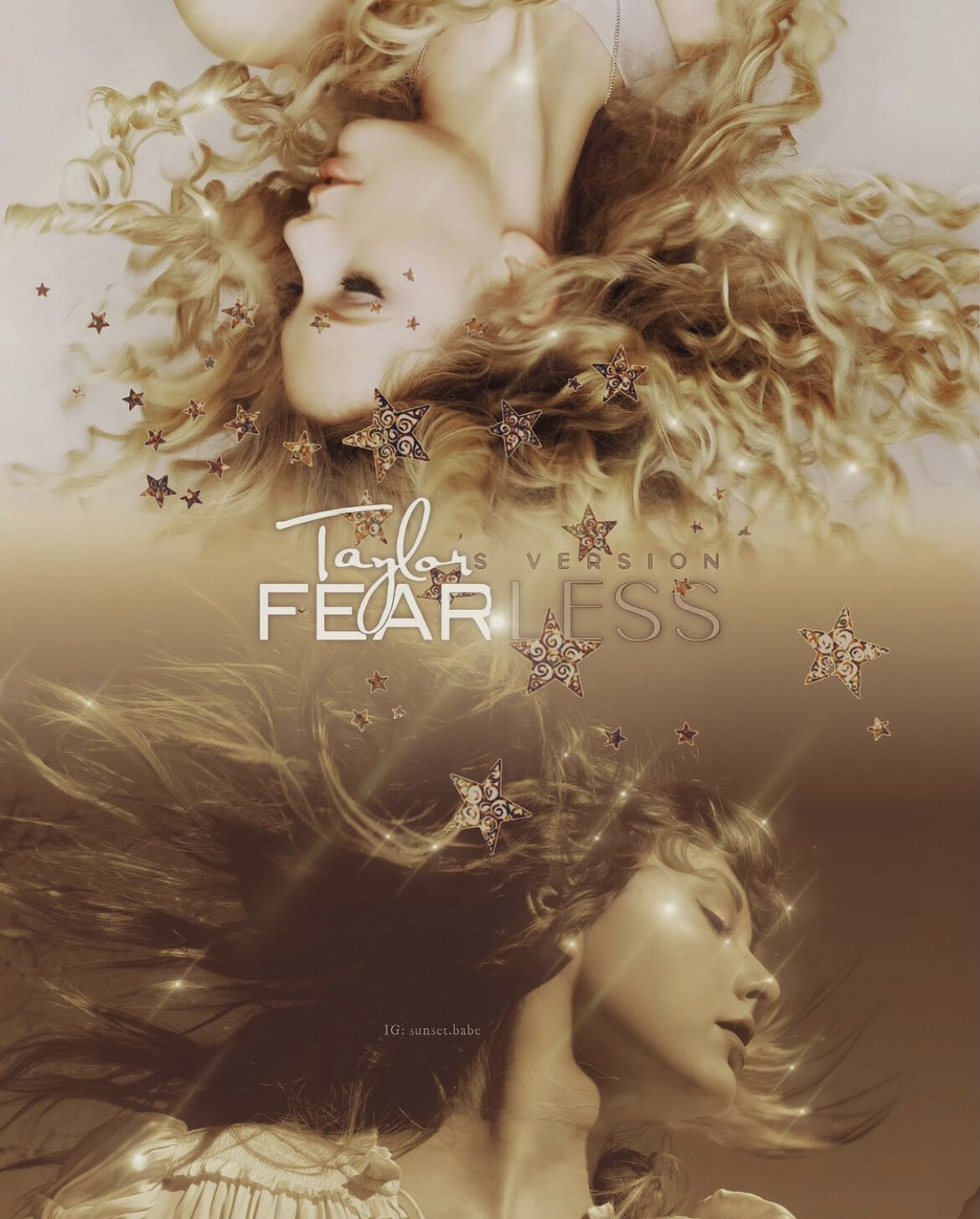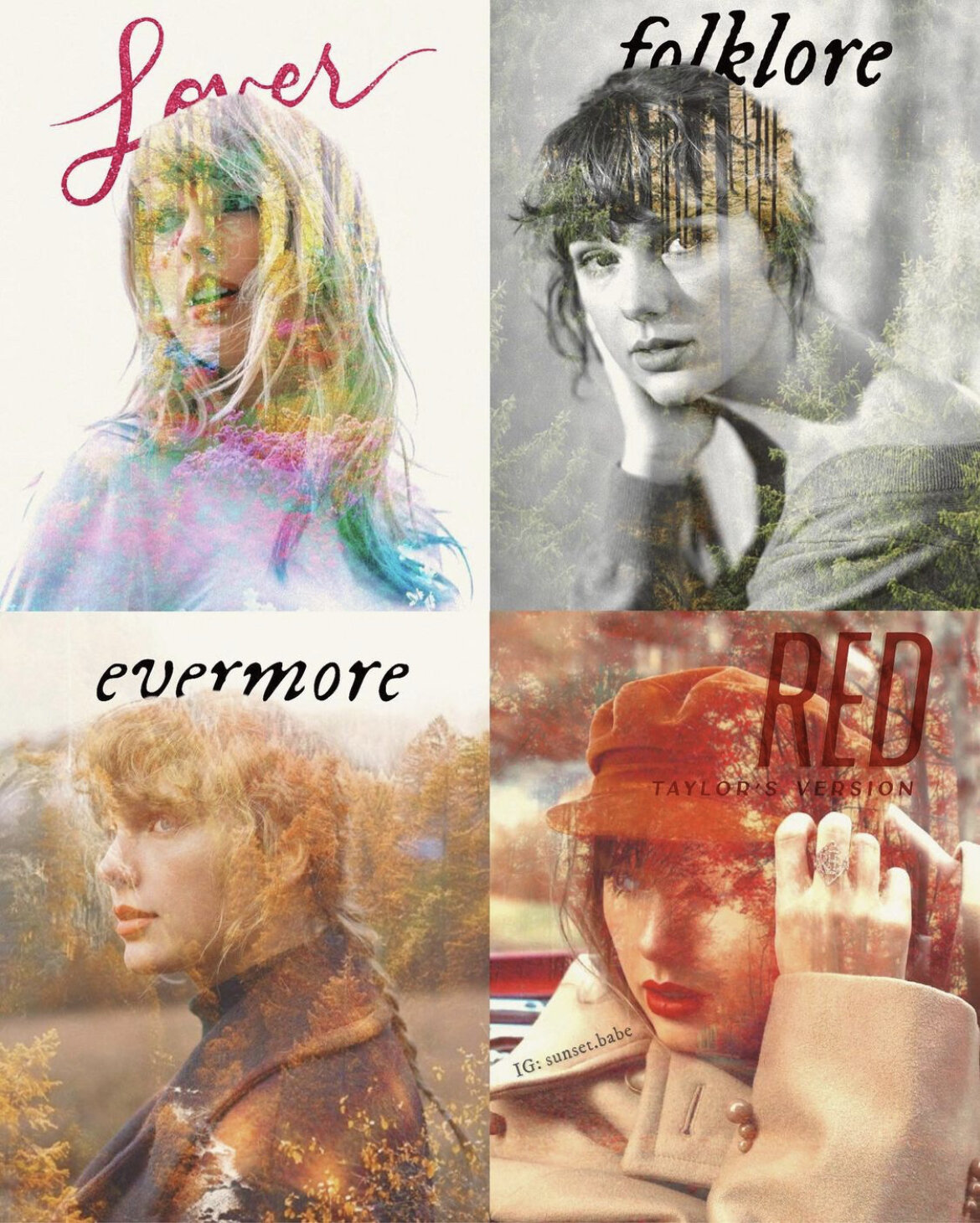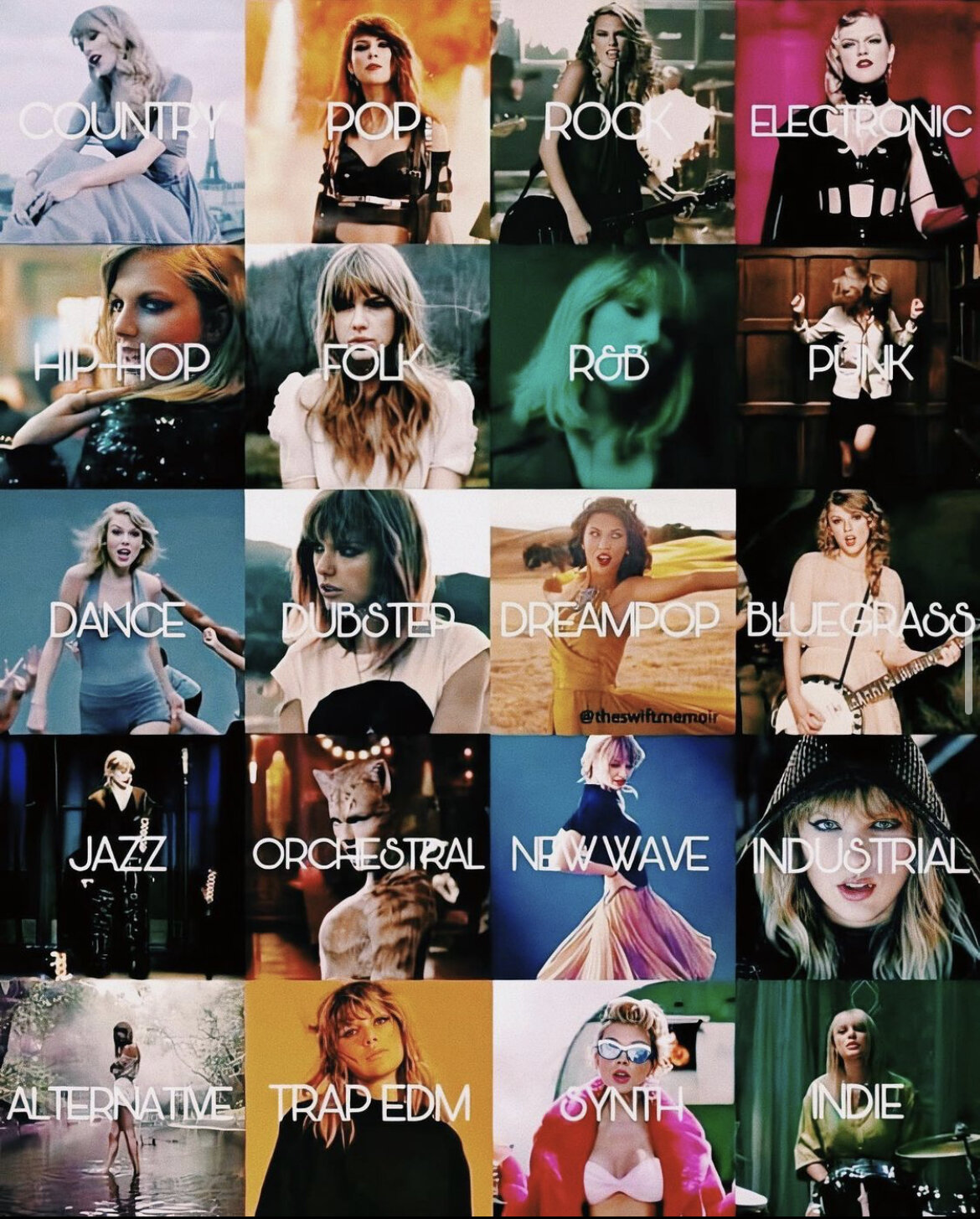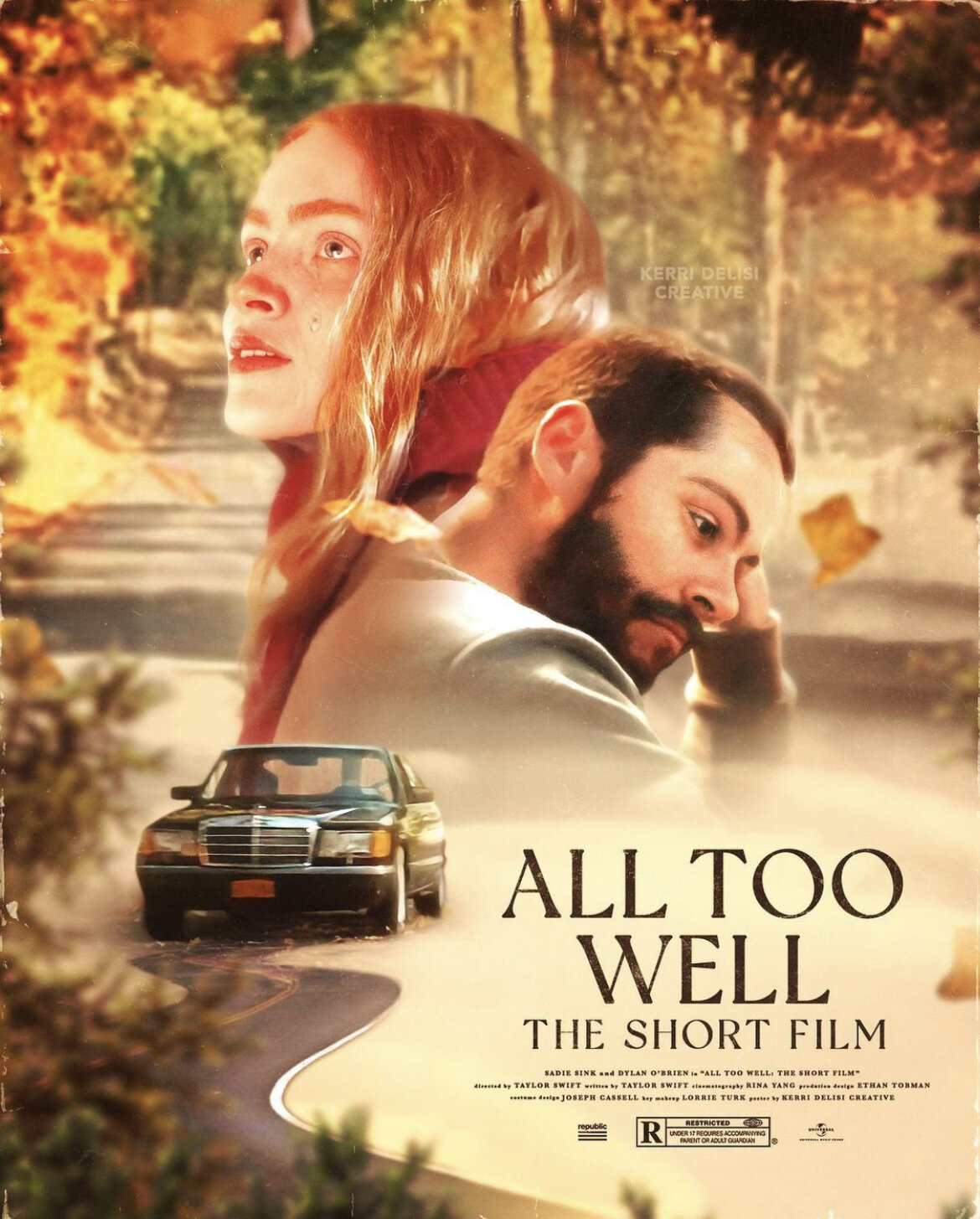The Escapism of Taylor Swift’s Re-Recorded Discography
By Maddie W. & Pooja P. (Taylor’s Version)
December 17, 2021
Image by @/seegoldendaylight on Tumblr
“I want to still have a sharp pen, and a thin skin, and an open heart.” - Taylor Swift
In 2005, a 15-year old Taylor Swift was signed to her first record label, Big Machine Records. 16 years later - it might have been her biggest mistake. One of Swift’s strongest beliefs has always been that artists should have the right to own their work. When even she wasn’t provided this opportunity, it sent the music industry into an uproar. “I learned about Scooter Braun’s purchase of my masters as it was announced to the world,” Swift wrote in a Tumblr post on June 30, 2019. By “masters,” she refers to the official recordings of her songs. She was not given the chance to purchase her first six albums once her contract ended with Big Machine; in an unexpected turn of events, her record executive and trusted friend, Scott Borchetta, sold them to a music investor by the name of Scooter Braun. Borchetta knew of Swift and Braun’s past feuds, yet did not utter a word to her in the buying process. Swift, who had made it clear that she wanted to buy her music beforehand, said this was her “worst case scenario.” Angry and betrayed, she promised fans she would release re-recordings of the masters that were bought without her knowledge so that she may finally own her own music. Swift was able to do this because she found a loophole in Braun’s purchase: He only owned the specific recordings of her songs that were on the albums, yet she still had rights over the lyrics and melodies. “I just figured, I was the one who made this music first, I can just make it again,” Swift said. The endeavor received resounding praise and support from the public. This past spring, she has begun the journey of reclaiming what’s rightfully hers.
Swift was arguably one of the most productive artists during the COVID-19 pandemic. She released 2 documentaries, a short film, a concert recording, and four (4) studio albums, each with over 17 songs. Two of these albums were her first re-recorded versions of past work: Fearless (2008) and Red (2012). Swift distinguished the original and re-recorded music by titling them “Taylor’s Version,” as she explained in a Seth Meyers interview last month. “When something says in parentheses, (Taylor’s Version) next to it, that means I own it, which is exciting!”
Fearless (Taylor’s Version) was released on April 8, 2021. It came 13 years after the original album and featured artists like Maren Morris, Keith Urban, and Colbie Caillat. She also included 6 unreleased songs, for which she coined the term “vault tracks.” “I’ve been going through the process of re-recording all of my older music, and in the process, I’ve dug up these songs that I wrote along the way that didn’t make the album…” she explains. These were the songs that “killed her to leave behind” when the album was originally released.
Red (Taylor’s Version) came 7 months later, dropping on November 12, 2021. It is officially her longest album, both in track number and time length. Numbering a whopping 30 songs (with 9 vault tracks), it includes the much-anticipated 10 minute version of the beloved fan favorite anthem, “All Too Well.”
“The song All Too Well was the hardest to write because it took me a long time to filter through everything that I wanted to put in the song,” she said in a 2012 interview. “It started out being probably like a ten minute song, which you can’t put on an album, and I had to filter it down to like a story that could work in the form of a song.”
Little did fans know, the five minute “All Too Well'' that they had known for nine years was actually an edited version of a 10 minute song. Fans were shocked to hear the painstakingly raw original lyrics: “All’s well that ends well, but I’m in a new hell” and “F**k the patriarchy” are just some of the many shots she takes in this track, which is reportedly about her past relationship with Jake Gyllenhall. Because it is 10 minutes long, Swift wrote and directed her own short film for it, starring Sadie Sink and Dylan O’Brien. The film’s success garnered critical acclaim that put the Jake Gyllenhall slander at an all-time high. Meanwhile, “All Too Well (10 Minute Version) (Taylor’s Version) (From The Vault)” skyrocketed to #1 on the Billboard Hot 100, becoming “the longest No. 1 by run time in the Hot 100’s history,” according to Billboard.
Swift’s re-recordings have offered an opportunity for her and her fans to go back in time and visit that album’s era. The state of mind she was in when she wrote the songs as a teenager combined with her older, more mature vocals covering the track is an intimate look at her growth as an individual and a songwriter.
Usually when artists have chosen to re-record music in the past, their attempts are unsuccessful because audiences prefer to listen to the original. But Swift has made her re-records so similar, that it wasn’t long before they outshined the original recording. The new versions include a mix of genres that weren’t apparent on the album before, and everything from pop-rock to alternative and country genres have made their way into Taylor’s Version albums.
Somehow, Swift has also managed to hold the attention of the music industry for 15 years. This is a difficult accomplishment that many artists, in particular female artists, struggle with. She’s voiced fears about becoming obsolete in the past: "be new to us, be young to us—but only in a new way and only the way we want," she says as she calls out the impossible demands of a misogynistic society. Taylor also collaborated with a younger female artist, Phoebe Bridgers, on a vault song called “Nothing New” from Red (Taylor’s Version). The vulnerable song expresses deep seated anger at female artists being rejected and ignored by the music industry once they reach a certain age. It points out the double standard of female artists having to re-invent themselves twice as many times as male artists just to satisfy an audience. Both Swift and Bridgers can offer interesting perspectives on the topic. A fan on social media put it best: “I just think two women in the music industry singing about how they’re afraid to lose … their novelty, in an industry where that is the most valued currency for women, it's absolutely heart wrenching.”
In her January 2020 documentary on Netflix, Miss Americana, Swift acknowledges her popularity coming to an end: "This is probably one of my last opportunities as an artist to grasp onto that kind of success. So, I don't know, as I'm reaching thirty, I'm like, I want to work really hard while society is still tolerating me being successful." Her goal seems to be coming along well, especially after the release of her Grammy-award winning July 2020 album, folklore, which many critics will argue was a turning point in her career.
Swift’s response to the unfortunate incident involving her master recordings opened up an entirely new journey forward. She emphasizes that stealing a woman’s voice by the words she wrote about her own life is uncalled for. “And I still talk to you (when I'm screaming at the sky), and when you can't sleep at night (you hear my stolen lullabies)” she sings in the song, “my tears ricochet,” from folklore. But for now, the immediate success of Fearless and Red (Taylor’s Version) has prompted supporters to ask the question: Which re-recorded album is next? After some sleuthing, fans are split between Speak Now (2010) and 1989 (2014), both of which she has dropped recent hints about. What do you think is next for the artist of the decade?
Takin' my time
'Cause you took everything from me
Watchin' you climb
Watchin' you climb
Over people like me
The master of spin
Has a couple side flings
Good wives always know
She should be mad
Should be scathing like me
But no one likes a mad woman
Scooter Braun posts about how he “buys Taylor Swift” that he later took down
2008 Fearless album cover vs. 2021 Fearless (Taylor’s Version) album cover
Art by @/sunset.babe on Instagram
The albums Taylor Swift owns - Not pictured: Fearless (Taylor’s Version)
Art by @/sunset.babe on Instagram
All Too Well: The Short Film, written and directed by Taylor Swift
Starring Sadie Sink, Dylan O’Brien, and Taylor Swift
Art by @/kerridelisicreative on Instagram
Art by @/ronsfath on Instagram








